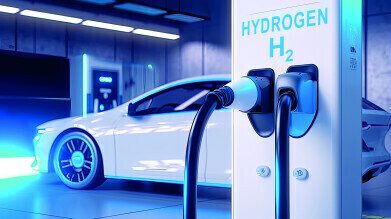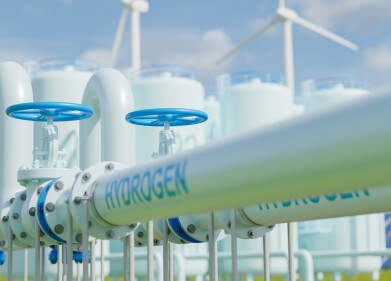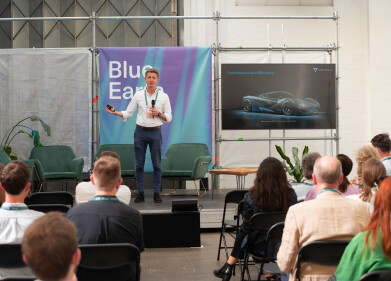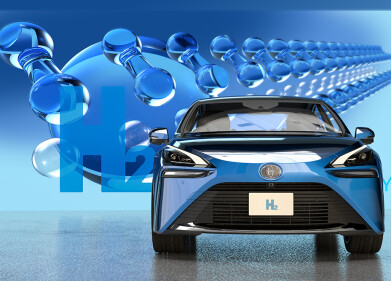Hydrogen fuel
Honda predicts hydrogen fuel cells to usurp batteries for EVs
Jan 18 2024
In a groundbreaking shift in the automotive industry, Honda, one of the world's leading car manufacturers, has proclaimed its steadfast commitment to hydrogen fuel cell technology as the future of electric vehicles (EVs). This bold statement marks a significant pivot from the current trend of battery-powered EVs, signalling a new era in sustainable transportation.
Honda's top executive, Inoue Katsushi, responsible for the brand's electrification strategies, recently articulated the company's vision. He anticipates a two-phase evolution in the automotive sector, with battery EVs leading the way, followed by a more robust adoption of hydrogen fuel cell vehicles. Katsushi asserts that while the transition to fuel cells may take longer, the technology's potential is immense, especially for heavier vehicles like Heavy Goods Vehicles (HGVs).
The Japanese automotive giant has set an ambitious target, aiming for 100% of its sales to comprise electric or hydrogen-powered vehicles by 2040. However, the exact proportion between these two technologies remains unspecified, underlining the company's flexible approach towards the future of automotive power.
In a significant development, Honda has joined forces with Isuzu to create the 'Giga Fuel Cell' vehicle. This project, currently in its testing phase, is expected to hit the market by 2027, marking a new chapter in Honda's hydrogen journey.
Honda's commitment to hydrogen technology is not new. The company has been a pioneer in this field, launching its first hydrogen vehicle, the FCX Clarity, as far back as 2008. This vehicle boasts an impressive 366-mile range and emits only water vapor, underlining the environmental benefits of hydrogen fuel cell technology.
More recently, Honda has expanded its hydrogen vehicle lineup with a fuel cell version of the current CR-V, developed in partnership with General Motors. This move reinforces the company's belief in the viability of fuel cell electric vehicles (FCEVs) as a mainstay in its global product offering.
Despite these advancements, Honda acknowledges the challenges ahead. Katsushi noted that the slow sales of the original Clarity model were largely due to inadequate infrastructure and high costs. However, he remains optimistic about the future, particularly with Honda's next-generation fuel cell technology, which promises to be more competitive and efficient.
Honda's strategy also involves a broader application of hydrogen technology. The company envisions its fuel cells powering not just vehicles but also serving as stationary power stations and in construction machinery. This holistic approach aims to harness hydrogen's potential in various sectors, contributing significantly to global decarbonization efforts.
Other automotive giants like Toyota and Hyundai are also shifting their focus towards hydrogen for commercial vehicles and industrial applications. Toyota, for instance, has recently launched a fuel cell-powered version of its luxury Crown saloon in Japan. Meanwhile, Hyundai is determined to make hydrogen mainstream by 2040, aiming to achieve price parity with battery electric vehicles within this decade.
Honda's latest venture with GM further cements its commitment to hydrogen technology. The company plans to start producing a new hydrogen fuel cell system, co-developed with GM, this year. With targets to reach annual sales of around 2,000 units in the mid-decade and escalate to 60,000 units by 2030, Honda is clearly gearing up for a hydrogen-powered future.
Honda's vision for hydrogen fuel cells as the successor to battery EVs represents a significant shift in the automotive landscape. The company's ongoing investments, partnerships, and innovative approaches in this domain underscore its commitment to leading the charge towards a sustainable, hydrogen-fuelled future. This strategy not only aligns with global decarbonization goals but also promises to transform the way we think about mobility and energy use in the years to come.
Digital Edition
PIN 25.6 Buyers' Guide
January 2025
Buyers' Guide Directory - Product Listings by Category - Suppliers Listings (A-Z) Articles Analytical Instrumentation - ASTM D7042: The Quantum Leap in Viscosity Testing Technology -...
View all digital editions
Events
SPE Hydraulic Fracturing Technology Conference and Exhibition
Feb 04 2025 The Woodlands, TX, USA
Feb 05 2025 Guangzhou, China
Trinidad and Tobago Energy Conference 2025
Feb 10 2025 Point Lisas, Trinidad
Feb 11 2025 Lagos, Nigeria
Feb 13 2025 Manama, Bahrain



















